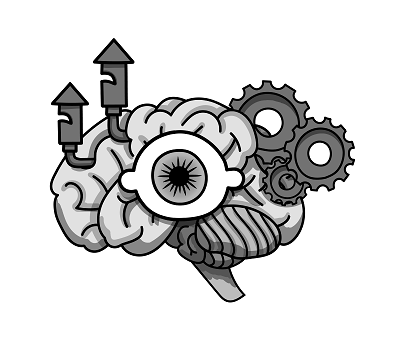“When someone says both sides, its obvious they have not been watching the actions of the political parties. Lets look how they vote.” - /u/armored_cat
Really annoys me when I read apathetic people saying that Dems and Reps are the same. Yes, there’s a lot of crony corpos in the Dems side but they are in no way even close to the same. There’s a lot of stuff the Dems have done that I’m not a fan of, but are still not even close to being the same as Reps.
This is a great comment that outlines the stark differences on voting records that I archived so it wasn’t lost.
They are not the same, make sure you vote to keep the fascists out. Also vote in the primaries so we can get more progressive/populist representatives as candidates. Voting is not the only answer to salvage the future but it’s definitely a part of the answer.



The solution to the “both sides” argument is to develop a rigorous system of values based on purely logical reasoning with a definitive answer to what is ethical and what cannot be tolerated. As long as people follow emotional arguments and lines of reasoning based on higher-level concepts that fail to highlight the chain of proof that has led to their truth, then uncertainty will cause inaction and complacency.
I see how you got the mathematician part of your name.
Unfortunately, most people rely almost exclusively on emotive reasoning and even those who try to do better have trouble nailing down the exact values of humanity with mathematical sharpness. It stands high on my list of reasons to expect humanity not to survive the century, unfortunately. If you have a novel process to this end to point to I would be quite interested.
I find that the policies built on “logic only” tend to break down because they ignore emotion and feelings entirely. People are emotional by nature and our feelings, sense of well-being, sense of justice, sense of oppression, and so on are very real in that they drive how we react and respond to each other. Trying to make a utopia based on people not reacting to their emotions is like trying to make a utopia where people don’t need to eat - it might be nice, but it’s unrealistic.
Imagine if someone came up and kept stabbing you with a rusty pin every day, and whenever you jump away and say “ow!” they roll their eyes and say “logically, this shouldn’t bother you, because it only hurts for a second, you’re not bleeding and I know that this pin won’t give you tetanus. You’re being very irrational right now.” Based on their logic, they’re right, you won’t be measurably hurt, but it still has a real effect on you and you’ll want to do everything you can to stop getting randomly stabbed by a rusty pin every day. Your lived experience is real to you.
Your arguments have nothing to do with my comment and distract from the point. There is nothing similar between lacking the need to eat or being abused with a nail and the fact that consistent and fair political ideas must be rational in nature. I didn’t claim that emotions are not relevant.
Emotions represent beliefs which, if they match what ia metaphysically true, will ve logical. Emotions that conflict with facts represent miscalculations. The point is that, since ethics can be based off of logic from starting principles about humans and the universe, it should be followed as such instead of being tugges in any given direction by populism.
At any rate, you’re right that others don’t support the idea.
Firstly, that pessimistic attitude is invading the minds of many and all it does is confuse values and prevent progress, so I would recommend focusing on doing what you can to assert your values and bring change rather than spreading fatalism.
Secondly, this formulation has been done to a great extent by Ayn Rand, and reading Peikoff’s full exploration of her ideas would be a great way to see this in detail. I think her prejudice prevents her from reasoning accurately on some higher-level points, but the point is that ethics and politics can be derived from basic axioms specifically because all humans have one core value of their own continued existence. I’ve been working the details out and I’d like to talk about it if you are interested in playing with the ideas.
Ayn Rand is so very much not the person I want to be the guiding light for AGI. That’s not even a subtle failure.
Anyhow, this is the stuff I’m actually pretty focused on in day to day life. I have a fair degree of fatalism because I have a well-grounded idea of exactly how hard it is. That doesn’t mean I’ve given up, but I don’t think covering our eyes and ears and saying, “LA LA LA SHUTUPSHUTUPSHUTUP” is going t solve the problem.
“Reality is that, which when you stop believing in it, doesn’t go away.”
Have you really looked into her philosophical work? I think she’s historically the closest to constructing a convincing ethical system based on logical principles connected to reality. Your last quote is something that might as well have been a toned-down version of her ideas, given how close it is to what she believed in her life.
I don’t suggest ignoring anything. However, many people take the fatalist perspective as a careful one without really evaluating its accuracy, and thus it spreads and locks an uncertain future into the result it assumes.
The “greed is good actually” line is the one I take issue with. It’s very shortsighted and I really don’t want anything with more power than our species taking it to heart.
Okay, but have you read a construction of her actual system? It’s not about greed, it’s a system of ethics based on two things: basic metaphysical axioms you must accept to even consider any kind of philosophical discourse, and the fact that human being are alive. It sounds impossible, but she created a 100% objective system of ethics based on these principles, hence the name Objectivism. The point isn’t whether you like the idea or not, the point is whether you understand the logical origin of the ideas and why they are correct. It’s a deeply interesting system if you want to fully examine it. Here is a link to an objective source on her work including many criticisms that might help you understand it better if that’s something you wish to do.
https://plato.stanford.edu/entries/ayn-rand/notes.html#note-7
So why were her fiction books about “Screw you I got mine”, as well as her life? Was she a terrible representative of her system, or is there perhaps an issue with the system?
Ad hominem and a complete mischaracterization of Rand and her books? At this point I don’t know if we’re talking about the same person.
Yes, Objecticism is founded on ethical egoism, but altruistic values are emphasized when they are consequences of basic virtues. There isno emphasis on failing to help others, but instead encouragement to do so only when one truly wishes to, free of guilt for what one has earned.
Also, Rand lived a rather generous life herself i many ways, especially for an egoist. Also, claiming her system of ethics is bad because she is a bad person is circular and useless. ;)